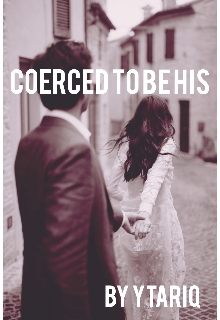The Atlantic Book of Modern Plays by Gordon Bottomley et al. (i read a book TXT) 📗

- Author: Gordon Bottomley et al.
Book online «The Atlantic Book of Modern Plays by Gordon Bottomley et al. (i read a book TXT) 📗». Author Gordon Bottomley et al.
(Again he cries out, beseechingly)
My God, why do You keep on marchin'
and leave him settin' here?
(To the music outside, the voices of children begin to sing
the words of "John Brown's Body." At the sound,
LINK'S face becomes transformed with emotion, his
body shakes, and his shoulders heave and straighten.)
No!—I—won't—set!
(Wresting himself mightily, he rises from his chair, and stands.)
Them are the boys that marched to Kingdom-Come
ahead of us, but we keep fallin' in line.
Them voices—Lord, I guess you've brought along
Your Sunday choir of young angel folks
to help the boys out.
(Following the music with swaying arms)
Glory!—Never mind me singin': you kin drown me out. But I'm goin' t' jine in, or bust!
(Joining with the children's voices, he moves unconsciously along the edge of the woodpile. With stiff steps—his one hand leaning on the hoe, his other reached as to unseen hands, that draw him—he totters toward the sunlight and the green lawn, at back. As he does so, his thin, cracked voice takes up the battle-hymn where the children's are singing it.)
"—a-mould'rin' in the grave,
John Brown's body lies a-mould'rin' in the grave.
John Brown's body lies a-mould'rin' in the grave,
But his soul goes—"
(Suddenly he stops, aware that he is walking, and cries
aloud, astounded)
Lord, Lord, my legs!
Whar did Ye git my legs?
(Shaking with delight, he drops his hoe, seizes up the
little flag from the woodpile, and waves it joyously.)
I'm comin', boys!
Link's loose agin: Chipmunk has sprung his trap.
(With tottering gait, he climbs the little mound in the
woodpile.)
Now, boys, three cheers for Cemetery Ridge!
Jine in, jine in!
(Swinging the flag)
Hooray!—Hooray!—Hooray!
(Outside, the music grows louder, and the voices of old men and children sing martially to the brass music.
With his final cheer, LINK stumbles down from the mound, brandishes in one hand his hat, in the other the little flag, and stumps off toward the approaching procession into the sunlight, joining his old cracked voice, jubilant, with the singers:)
"—ry hallelujah,
Glory, glory hallelujah,
His truth is marchin" on!"
Harold Brighouse
[Footnote 1: Included by special permission of the author and of the publishers, Messrs. Gowans and Gray, of Glasgow.]
CHARACTERSSAKAH ORMEHOD, An old woman
EMMA BRIERLEY, A young woman
THE REV. FRANK ALLEYNE, A curate
SAM HORROCKS, A young man
THE SCENE represents the interior of a cottage in a Lancashire village. Through the window at the back the gray row of cottages opposite is just visible. The outside door is next to the window. Door left. As regards furniture the room is very bare. The suggestion is not of an empty room, but a stripped room. For example, there are several square patches where the distemper of the walls is of a darker shade than the rest, indicating the places once occupied by pictures. There is an uncovered deal the left wall is a dresser and a plate-rack above it containing a few pots. The dresser has also one or two utensils upon it. A blackened kettle rests on the top of the cooking-range, but the room contains only the barest necessities. The floor is uncarpeted. There are no window curtains, but a yard of cheap muslin is fastened across the window, not coming, however, high enough to prevent a passer-by from looking in, should he wish to do so. On the floor, near the fire, is a battered black tin trunk, the lid of which is raised. On a peg behind the door left is a black silk skirt and bodice and an old-fashioned beaded bonnet. The time is afternoon. As the curtain rises the room is empty. Immediately, however, the door left opens and SARAH ORMEROD, an old woman, enters, carrying clumsily in her arms a couple of pink flannelette nightdresses, folded neatly. Her black stuff dress is well worn, and her wedding-ring is her only ornament. She wears elastic-sided boots, and her rather short skirt shows a pair of gray worsted stockings. A small plaid shawl covers her shoulders. SARAH crosses and puts the nightdresses on the table, surveying the trunk ruefully. There is a knock at the outside door and she looks up.
SARAH. Who's theer?
EMMA (without). It's me, Mrs. Ormerod, Emma Brierley.
SARAH. Eh, coom in, Emma, lass.
(Enter EMMA BRIERLEY. She is a young weaver, and, having just left her work, she wears a dark skirt, a blouse of some indeterminate blue-gray shade made of cotton, and a large shawl over her head and shoulders in place of a jacket and hat. A colored cotton apron covers her skirt below the waist, and the short skirt displays stout stockings similar to Sarah's. She wears clogs, and the clothes—except the shawl—are covered with ends of cotton and cotton-wool fluff. Even her hair has not escaped. A pair of scissors hangs by a cord from her waist.)
SARAH. Tha's kindly welcoom. It's good o' thee to think o' coomin' to see an ould woman like me.
EMMA (by door). Nought o' th' sort, Mrs. Ormerod. Th' mill's just loosed and A thowt A'd step in as A were passin' and see 'ow tha was feeling like.
SARAH (crossing to box). Oh, nicely, nicely, thankee. It's only my 'ands as is gone paralytic, tha knaws, an' a weaver's no manner o' good to nobody without th' use o' 'er'ands. A'm all reeght in masel'. That's worst of it.
EMMA. Well, while A'm 'ere, Mrs. Ormerod, is theer nought as A can do for thee?
SARAH. A dunno as theer is, thankee, Emma.
EMMA (taking her shawl off, looking round and hanging it on a peg in the door). Well, A knaws better. What wert doin' when A coom in? Packin' yon box?
SARAH. Aye. Tha sees theer's a two three things as A canna bear thowt o' parting from. A don't reeghtly knaw if they'll let me tak' 'em into workus wi' me, but A canna have 'em sold wi' rest of stuff.
EMMA (crosses below SARAH to box, going on her knees). Let me help yo'.
SARAH. Tha's a good lass, Emma. A'd tak' it kindly of thee.
EMMA. They'd do wi' packin' a bit closer. A dunno as they'd carry safe that road.
SARAH. A know. It's my 'ands, tha sees, as mak's it difficult for me.
(Sits on chair.)
EMMA. Aye. A'll soon settle 'em a bit tighter.
(Lifts all out, buries her arms in the box, and rearranges its contents.)
SARAH. But what's 'appened to thy looms, lass? They'll not weave by 'emselves while thee's 'ere, tha knows.
EMMA (looking round). Eh, looms is all reeght. Factory's stopped.
It's Saturday afternoon.
SARAH. So 't is. A'd clean forgot. A do forget time o' th' week sittin' 'ere day arter day wi' nought to do.
EMMA. So that's all reeght. Tha's no need to worry about me.
Tha's got trouble enough of thy own.
(Resuming at the box)
SARAH. Aye, th' art reeght theer, lass. Theer's none on us likes to think o' goin' to workus when we're ould.
EMMA. 'Appen it'll be all reeght after all. Parson's coomin' to see thee.
SARAH. Aye, A knaw 'e is. A dunno, but A'm in 'opes 'e'll do summat for me. Tha can't never tell what them folks can do.
EMMA (kneeling up). Tha keep thy pecker oop, Mrs. Ormerod. That's what my moother says to me when A tould 'er A were coomin' in to thee. Keep 'er pecker oop, she says. It's not as if she'd been lazy or a wastrel, she says; Sal Ormerod's bin a 'ard worker in 'er day, she says. It's not as if it were thy fault. Tha can't 'elp tha 'ands goin' paralytic.
(She continues rummaging in the trunk while speaking.)
SARAH. Naw. It's not my fault. God knaws A'm game enough for work, ould as A am. A allays knawed as A'd 'ave to work for my living all th' days o' my life. A never was a savin' sort.
EMMA. Theer's nowt against thee for that. Theer's soom as can be careful o' theer brass an' soom as can't. It's not a virtue, it's a gift. That's what my moother allays says.
(Resumes packing.)
SARAH. She's reeght an' all. We never 'ad the gift o' savin', my man and me. An' when Tom Ormerod took an' died, the club money as A drew all went on 'is funeral an' 'is gravestone. A warn't goin' to 'ave it said as 'e warn't buried proper.
EMMA. It were a beautiful funeral, Mrs. Ormerod.
SARAH. Aye.
EMMA. A will say that, beautiful it were. A never seen a better, an' A goes to all as A can. (Rises.) A dotes on buryin's. Are these the next?
(Crosses before table for nightdresses, takes the nightdresses and resumes packing.)
SARAH. Aye
(Emma puts them in and rests on her knees listening to Sarah's next speech.)
SARAH (pause). A've been a 'ouseproud woman all my life, Emma, an' A've took pride in 'avin' my bits o' sticks as good as another's. Even th' manager's missus oop to factory 'ouse theer, she never 'ad a better show o' furniture nor me, though A says it as shouldn't. An' it tak's brass to keep a decent 'ouse over your yead. An' we allays 'ad our full week's 'ollydayin' at Blackpool reg'lar at Wakes time. Us didn't 'ave no childer o' our own to spend it on, an' us spent it on ourselves. A allays 'ad a plenty o' good food in th' 'ouse an' never stinted nobody, an' Tom 'e liked 'is beer an' 'is baccy. 'E were a pigeon-fancier, too, in 'is day, were my Tom, an' pigeon-fancying runs away wi' a mint o' money. No. Soom'ow theer never was no brass to put in th' bank. We was allays spent oop coom wages neeght.
EMMA. A knaw, Mrs. Ormerod. May be A'm young, but A knaw 'ow 't is. We works cruel 'ard in th' mill, an' when us plays, us plays as 'ard too (pause), an' small blame to us either. It's our own we're spendin'.
SARAH. Aye. It's a 'ard life, the factory 'and's. A can mind me many an' many's the time when th' warnin' bell went on th' factory lodge at ha'f past five of a winter's mornin' as A've craved for another ha'f hour in my bed, but Tom 'e got me oop an' we was never after six passin' through factory gates all th' years we were wed. There's not many as can say they were never late. "Work or clem," that were what





Comments (0)